I review the pros and cons of the Keto Diet and if it leads to weight loss.
I wasn’t planning on writing about the ketogenic diet but that all changed with my recent YouTube video. My girl Abby Langer and I found a hilarious Reddit thread that shared some keto-followers favourite “strange but delicious” keto-friendly meals and snacks. Let’s just say, it was extreme. I was by no means under the impression that everyone on the Keto diet ate that shit. I get why some viewers on youtube maybe thought that and they got PISSED. Like, viciously pissed.
Become an Abbey’s Kitchen Subscriber
I decided to share what I ACTUALLY think on all things keto. I want to give you a comprehensive review of the diet so there’s no confusion. At the end of the day, ‘haters gon hate’ but at least I can sleep at night knowing I’ve done my due diligence in whole heartedly giving you all the necessary information around this diet.
Let’s dive in.
What Is the Keto Diet?
If you haven’t already jumped on the keto diet bandwagon, I’ll give you a brief introduction. Basically, the ketogenic diet is a super high in fat (65-75% of your diet is fat), a super low carbohydrate (<5% of your diet) and moderate in protein (15-20% of your diet). Surely, not the most balanced of diets considering Health Canada your diet should contain 10-35% of protein, 45-65% of carbohydrate and 20-35% of fat. So how to you meet that skewed macronutrient distribution? Well, you load up on keto diet staples like meat, fish, butter eggs, cheese, heavy cream, oils, nuts, avocados, seeds and low carb green vegetables. And you cut out all your go-to carb sources like grains, rice, beans, potatoes, sweets, milk, cereals, and fruits. These kinds of restrictive diets tend to make nutrition professionals like dietitians run for the hills but I’m going to give it my honest unbiased account.
dietitian’s keto diet review
Dos and Don’ts of a Keto Diet
PROTEIN
Dos: Most proteins are fair game with a keto diet, however it is encouraged to enjoy organic, grass-fed or pasture-raised meats. On a keto diet you can enjoy a variety of protein sources such as whole eggs, fatty fish like salmon, seafood, organ meats, steaks, pork, poultry and more.
Don’ts: While the majority of proteins are okay in a keto diet, any meats or protein sources with added sugars is a no no.
OILS AND ADDED FATS
Dos: Fat makes up a huge part of the keto diet because it’s basically your main fuel. That is why it is encouraged to choose organic and grass-fed whenever possible. Excellent fat sources include olive oil, mayonnaise, coconut oil, butter, lard and other non-hydrogenated or unprocessed oils.
Don’ts: As long as there are no added sugars to the fat source, most fats are fair game.
NUTS AND SEEDS
Dos: Nuts and seeds are the best snack to fuel your day on a keto diet. Excellent sources include almond butter, flax seeds, macadamia nuts, brazil nuts and pecans.
Don’ts: Nuts covered in sugar are a no no.
DAIRY
Dos: Enjoy all of the cheese you would like on a keto diet. On top of that other great dairy sources include whole milk, full fat Greek yogurt and cream.
Don’ts: Avoid yogurts and creamers that are sweetened because they can quickly add to your overall carb count for the day.
FRUITS AND VEGGIES
Dos: To avoid constipation, load up on low carb veggies like kale, spinach, cabbage, mushrooms, green beans and green bell peppers. Some lower sugar fruit options include blueberries, blackberries and raspberries, but eat them sparingly.
Don’ts: Since fruits are high in sugar and carbs, they are usually a no go except for the few mentioned above. Fruits that are usually avoided on a keto diet include oranges, grapes, mangos, apples, papaya, pineapple, bananas, dried fruit and fruit concentrates. Avoid highly starchy vegetables like potatoes, corn, parsnips and yams.
GRAINS
Don’ts: All grains, even whole grains, should be avoided on a keto diet. A high intake of carbs will interfere with ketosis.
BEANS AND LEGUMES
Don’ts: Due to their high starch content, beans and legumes should be avoided.
What is Ketosis?
Ketosis is natural and normal, though arguably not optimal.
Our bodies run well on glucose (carbs)–they give us the necessary energy we need to function on a daily basis. When our body doesn’t get enough glucose (either because we’re cutting carbs too low, OR we haven’t eaten in too long), our body kind of freaks out and looks for other forms of energy to satisfy that role. That’s where the fat comes in. Without carbs, our insulin levels drop and fat is released from our cells. The fat overwhelms the liver which turns it into ketones, our body’s second choice to carbs for energy.
So, to confirm. Yes, your brain CAN function without carbs, but carbs are still your brains favourite good and some brain cells can only use glucose for fuel.
Ketoacidosis in Diabetes
It’s important we distinguish between the process of ketoacidosis seen in type 1 diabetes and this ketosis that so many people on the keto diet are striving for. If someone with diabetes lacks enough insulin and/or does not eat enough carbohydrates, they risk entering a state known as ketoacidosis. For those with uncontrolled diabetes, this can increase the levels of ketones in the blood, increasing the acidity of the blood, and potentially leading to a coma or even death. In ketosis for a healthy individual, the level of ketones in the blood never reaches these crazy high levels so it’s generally safe for the average healthy individual.
Bottom line: Ketosis is not ketoacidosis and is generally safe for most healthy people.
Keto Diet History
So where did the ketogenic diet come from? Interestingly enough, this fad diet didn’t spark from a celebrity endorsement or some guy missing a medical license. There’s evidence of the keto diet being used back in the early 1920s to treat severe childhood epilepsy and it’s still being used today for that purpose. Research suggests that the production of ketones may influence neurotransmitter activity in neurons allowing for a reduction in seizure attacks.
A recent Cochrane Review demonstrated a 30-40% reduction in seizures compared with non-keto diet controls. One thing to keep in mind, however (which is a theme when discussing the keto diet) is that it’s generally difficult to adhere to and difficult to tolerate for a lot of people. In other words, people go on it and then come off it pretty damn quick.
Neurological Diseases
Once the medical community acknowledged the keto diet’s effectiveness in reducing seizure episodes, they decided to look further and study its impact on neurological diseases in general. Neurological diseases share a common problem – a deficiency in energy production. Ketones provide that energy for normal brain cell metabolism, and may even be a more efficient when the body is in starvation mode. When patients were put on the keto diet, the number of mitochondria (energy powerhouse) in brain cells increased. Ketones may also act as an antioxidant by inhibiting the formation of reactive oxidant species, which is why they may have promising effects in the treatment of certain cancers in conjunction with chemotherapy.
A 2017 mice study from the University of California found that a ketogenic diet (90% of calories from fat) lead to an increased life span, memory and motor function. Researchers observed a 13% increase in median life span when compared to a high carb diet.
Really exciting stuff, actually. Let’s look at a few other specific neurological diseases and the impact of the keto diet there.
Alzheimer’s Disease
In a study, Alzheimer’s patients fed with a ketogenic diet experienced improvements in their symptoms, which again may be due to the improved mitochondrial function. In another study, patients with Alzheimer’s were given a drug with ketones and after 90 days, they experienced improvements in cognitive function.
Parkinson’s Disease
In a pilot study, five out of seven patients trialed a keto diet for 28 days and showed marked reduction in physical symptoms. Parkinson’s attacks our human nervous system, partially as a result of an abnormal accumulation of a protein called alpha-synuclein. Research suggests that a ketogenic diet may reduce the associated cognitive and motor symptoms.Obviously, we need more research here but its an exciting finding.
Multiple Sclerosis
This also may be too premature, but an animal study found that the keto diet delayed motor neuron death and showed MS improvements, however it did not increase the life span of the subjects. In an exciting 2016 study, the ketogenic diet improved the quality of life, physical health and mental health of patients living with MS.
Cardiovascular Health vs keto reviews
What about heart health and the keto diet? Previous older schools of nutrition would purport that a diet rich in fats (specifically saturated fats) would be detrimental for heart health. However, more recent research suggests that saturated fat is not as bad as previously believed. There is actually a tiny little bit of evidence that a keto diet may improve triglyceride, HDL and LDL levels. Like here and here. An even more recent study found that a keto diet improved triglyceride, HDL and LDL levels. We’ll definitely have to wait to see how that research unfolds.
Type 2 Diabetes vs ketogenic diet review
There have been many attempts at studying the link between type 2 diabetes and the keto diet. In one study, a strict low-carbohydrate diet was administered in obese patients with type 2 diabetes. After 14 days of being on the diet, the glucose levels of participants normalized. Their hemoglobin A1C decreased from 7.3% to 6.8% and insulin sensitivity improved by 75%. Some of this study’s limitations include the short duration, the small sample size and the weak control group. In another study, 84 obese patients with type 2 diabetes were randomized to either a low-carbohydrate keto diet or a low-glycemic reduced calorie diet. At the end of the study, both groups experienced improvements in glycemic control. However the low carb keto group had greater improvements in hemoglobin A1c and higher HDL levels compared to the low-glycemic group.
A more recent 2017 study in the journal of Nutrition and Diabetes found that a low carbohydrate ketogenic diet for 12 months led to greater reductions in HbA1c and body weight. These results suggest that low carbohydrate interventions may be effective at improving glucose control.
Cancer vs keto diet review
There is exciting research on the role of a keto diet as a form of treatment for cancer. In one study, the use of a keto diet on patients with advanced cancer was deemed safe, and some evidence suggested it played a role in stabilizing the disease or resulting partial remission. In another study, the keto diet was used as a form of therapy for patients with malignant brain cancer. The study found that the keto diet may carry anti-tumor effects when administered in experimental animal and human brain tumors. The researchers believe this may be due to the reduction in calories. This reduces the circulating glucose needed for tumor growth. It is still unsure whether a keto diet per se plays a role in this or simply calorie restriction. All of this is to say that the research is preliminary, however still promising.
Sports Performance vs ketosis review
In the sports nutrition field, we discuss the importance of timing carbohydrate and fluid intake on improving sports performance. For some time now, research has been looking at the role of very low carbohydrate diets on sports performance. Trailblazers in keto and sports performance research like Dr. Stephen Phinney have been conducting studies in this area since the 80s. In one of his studies, the glycogen stores of cyclists on a keto diet were not completely depleted and lipid oxidation was increased. Researchers concluded that the body was able to adapt to the lack of carbohydrates and preserve what was needed to use the fat as fuel. However, based on the VO2 max breath test, since the body was attempting to preserve the carbohydrate during the exercise, it appears that the intensity of the exercise was limited.
In a more recent study, off-road cyclists following a keto diet experienced small improvements, but still not significant enough to make strong conclusions.
The only difficulty with some of these studies is that they tend to have small sample sizes, like this one that only has five cyclist participants and the data was largely skewed by the fact that only ONE cyclist experienced a large enhancement of exercise capacity after the keto diet. Their studies also tend to be short term. Back in 2014, Phinney and scientist Tim Noakes wrote an editorial that stated that in the past 31 years, there have only been a handful of studies measuring sports performance and low carb diets. Out of a total of 11, only 3 found exercise improvements.
Recently a large study was released which contains a collection of 200+ keto and carbohydrate studies. Pretty big deal. Part 1 of the series looked at the ketogenic diet’s impact on body fat, muscle mass, strength and endurance.
what the research says
MUSCLE MASS
Studies found greater lean body mass loss in individuals following a ketogenic diet. However, since lean body mass contains water, glycogen and muscle protein, it was hard to determine whether lean body mass in the studies meant a loss in muscle protein or water and glycogen.
ENDURANCE PERFORMANCE
Studies found that endurance performance, whether it was anaerobic or aerobic was impaired or maintained with a ketogenic diet. Majority of studies used in this review had small sample sizes, no control group or were very short in duration. Because of this, it is still unclear whether endurance performance is enhanced or impaired with a ketogenic diet.
STRENGTH PERFORMANCE
The majority of the studies found that there was no statistically significant difference between the groups when it came to strength performance. Having said that, researchers had a tough time comparing the diets since protein and total energy were not matched.
To date, no studies have evaluated the long term effects of the keto diet on sports performance. That does not mean that the keto diet won’t be effective. For now we don’t yet have the evidence to draw strong enough conclusions to call it standard best practice.
Weight Loss vs ketogenic diet review
Most people are use this diet for rapid weight loss (surprise, surprise). Let’s take a look at what the literature says.
First of all, I can’t deny the fact that people will lose weight on a keto diet. Here’s why. First of all, you’re eliminating a major food group. When you do that, you limit your food options and most likely your food intake, so it’s not rocket science that you’ll likely lose weight. Second, most people on a low carb diet tend to increase their protein intake in the absence of carbs and there is some evidence that consuming higher amounts of protein may have some weight loss benefits. The large recent study mentioned above also looked at fat loss and found that individuals following a keto diet lost about the same weight as individuals following a different diet when they ate the SAME amount of calories. However, the studies found that individuals on the keto diet tended to lose body weight quicker.
why you lose weight on a keto diet
Here’s why. The reason the keto diet leads to rapid weight loss is due to the loss of water weight. One of the concerns with the keto diet is the loss of muscle mass and the depletion of glycogen stores. Glycogen, which stores our glucose, also stores water, so when stores are depleted, we flush out excess water. In other words, that rapid weight loss isn’t fat, it’s just water.
The keto diet also has an impact on our hormonal levels. Many studies have looked at whether the state of ketosis suppresses our appetite through the actions of leptin and ghrelin. A 2013 study found that after patients lost weight on a keto diet, our hunger hormone (ghrelin) was altered and suppressed. A systematic review also concluded that the state of ketosis appears to be a plausible explanation for the suppression of appetite. So this the keto diet may be good for dieters who can’t stand the discomfort of hunger. Finally, the keto diet also may have an impact on our stress hormone, cortisol. This was demonstrated in a Harvard study where the keto diet resulted in an increase in cortisol in individuals following a very low carb keto diet. High levels of cortisol is associated with insulin resistance, cardiovascular disease and may promote fat accumulation.
So we got the short term effects, but what about long term impacts of the Keto Diet?
So one study looked at the long-term effects of a keto diet in obese patients and after 24 weeks, patients lost weight, reduced their total cholesterol, LDL, triglycerides and increased their HDL. Another study conducted on 132 obese patients found that the low carb (keto) group lost more weight than the low fat group while improving biomarkers like decreased triglycerides, improved insulin sensitivity, and decreased fasting glucose. This all was confirmed in a 2013 meta-analysis, 13 RCTs (1,569 participants) found that patients assigned to a very low carbohydrate diet resulted in greater weight loss compared to those assigned to a low-fat diet.
There are also studies suggesting that long term carbohydrate restriction diets may result in fast short term weight loss. The caveat is that these people gain it all back in the long term. An RCT put 63 individuals on a low-fat diet or a low carb diet, and the study found the low carb dieters lost more weight compared to the low fat group by month 3 and 6, but that the weight loss evened out by month 12. This was confirmed by a Meta-analysis which found that while low-carbers lost more weight than low-fat dieters but the differences disappeared by the one year mark.
diets don’t work
One thing we know about diets and weight loss is that they don’t work. I’ve written about this in depth with regards to the participants on the Biggest Loser. This was evident in a study analyzing 31 long term studies on dieting, which found 2/3 of dieters put back the weight they lost. Other research has reported the failure rate may be as high as 95%. Any diet that is restrictive and unrealistic may be nearly impossible to sustain.
While the keto diet may result in weight loss, what are the dangers of doing this long term?
Potential keto diet danger
Loss of Muscle Mass
A huge concern with the keto diet is the maintenance and potential loss of muscle mass. Many people will just think: hey, dummy, then just eat more protein. Some research has shown that even if your protein intake remains constant, a low carb diet may promote muscle loss.
A study from the Netherlands confirmed these findings. In the study, participants consumed three diets (high carb, moderate carb, low carb) and moderate protein. The study found that those following a low carb diet experienced increased muscle breakdown. This is because when we eat carbohydrates, we produce insulin which promotes muscle growth. This is why athletes depend on carbohydrates (along with protein) to fuel their performance. When we eat carbs, the insulin release “unlocks” our muscles to let the protein in so it can do its job at building our muscles. When we skip carbs all together, muscle glycogen stores get depleted, we lose out on those muscle building opportunities. Forget about high intensity training. A depleted glycogen store also means our workouts will suffer because we just don’t have enough oil left in the tank.
This was a again suggested in the recent review looking at many ketogenic studies. The studies found that there was greater lean body mass loss in the ketogenic groups compared to the other diets being studied.
Keto “Flu” and Bad Breath
Since our body isn’t used to using ketones, we tend to feel flu-like when in ketosis. Lots of brain fog, fatigue, headaches, nausea and poor endurance. You also get bad smelling breath, sweat and pee from the acetone (a byproduct of fat metabolism). Sexy? Not so much. Thankfully, over time, a lot of people report that most of these side effects start to go away.
Constipation
Constipation is one of the most common onset side effects of following a keto diet. A ten-year study looking at the effects of a keto diet on 48 children found that 65% of the children experienced constipation. A low carb diet means you’re missing out on fibre-rich grains, fruits and certain vegetables.
High Cholesterol
With the high intake of fat, are we concerned about the high intake of cholesterol? YEP. A study using the keto diet as a form of treatment for epileptic seizures in children found that after 6 months of administering the diet, triglyceride levels increased, total cholesterol levels increased, and HDL and LDL increased. These results suggest that over time, a keto diet may lead to an increased risk of hypercholesterolemia and hypertriglyceridemia. In the same ten-year study, 40% of patients developed hypertriglyceridemia and 29% of patients experienced hypercholesterolemia. So, if heart disease runs in your family, you may want to bow out now.
Mineral deficiencies
Strict dietary restriction means we may be missing out on crucial vitamins and minerals. With the keto diet, major minerals that are missed include sodium, potassium and chloride which is why they are typically supplemented with a table salt tablet. Other vitamins that might be missed out on include vitamin D, calcium, magnesium, selenium and zinc. The lack of vitamin D and calcium puts keto dieters at risk for reduced bone health and increased risk for fractures and long term bone diseases.
The Verdict on the Keto Diet
Cutting out a whole food group (or in this case, more than one) is a dietitian’s worse nightmare. First, it makes it a really hard diet to follow. Second, it stresses the hell out of your body and makes it work a lot harder to keep up. In a US News & World Report’s review of 2018 diet, the ketogenic diet came in last place as a sustainable means to weight loss because of its restrictive nature.
the importance of carbohydrates
Carbohydrates make up the life blood of our body’s ability to function. Our body’s need it to run efficiently. Carbs promote muscle growth and endurance in athletes and gives us the energy to get through the day.
We’ve seen the role of a keto diet in neurological diseases and as a form of treatment. The keto diet may also act as a quick fix rapid weight loss tool just like any other restrictive diet. While the risks are likely low if you’re an otherwise healthy individual, I still wouldn’t brush them off as NBD.
More problematic for me is the fact that ANY diet is likely to encourages disordered eating behaviours.
This diet is focuses on how much you can eat and less about the quality of the food you eat. A recent 2018 study found that people who focused on eating plenty of vegetables and whole foods and less on counting calories and limiting food groups, lost a significant amount of weight over the course of a year. This continues to echo the notion that the key to successful weight loss is diet QUALITY and not QUANTITY. And now, there’s research that actually supports that!
bottom line
I’m a big believer that everything – especially carbs – can be enjoyed in moderation. The best diet is just whatever eating pattern you find most pleasurable that also meets your body’s unique needs. Now I need a summer peach, or a pillowy slice of focaccia, or a mindful bowl of pasta.
Become an Abbey’s Kitchen Subscriber
If you liked this post, you may like:
Can the Keto Diet Cure Your Digestion Problems & IBD?
Is it Safe to Breastfeed On The Keto Diet & How Does it Affect Breast Milk?
Does a Keto Diet During Pregnancy Cause Birth Defects?
A Dietitian’s Thoughts on What Netflix’s The Magic Pill Gets Right About The Keto Diet
A Dietitian’s Thoughts on What Netflix’s The Magic Pill Gets Wrong About The Keto Diet
Have you tried the keto diet for weight loss?
What are your thoughts on this keto diet review?
Let me know below!
Updated on May 12th, 2020

Abbey Sharp is a Registered Dietitian (RD), regulated by the Ontario College of Dietitians. She is a mom, YouTuber, Blogger, award winning cookbook author, media coach specializing in food and nutrition influencers, and a frequent contributor to national publications like Healthline and on national broadcast TV shows.




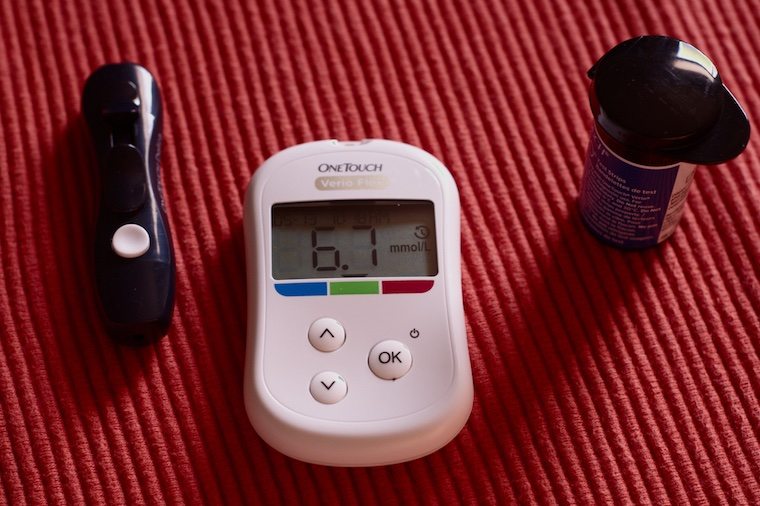


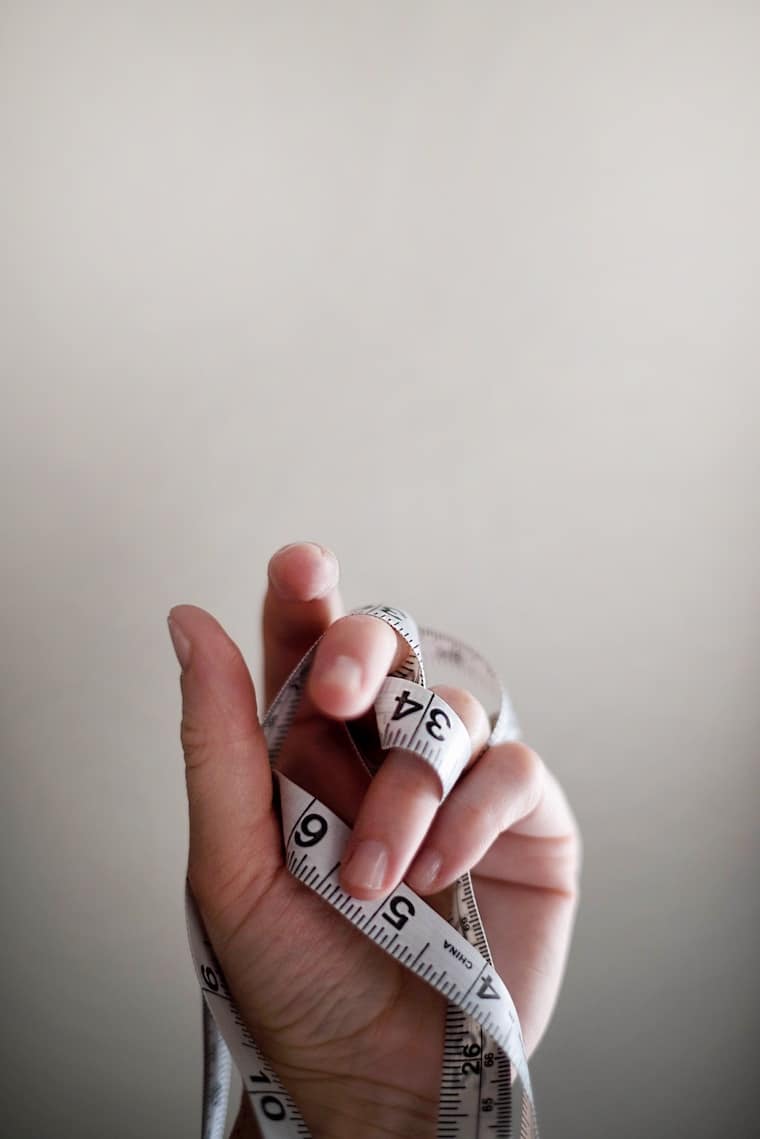


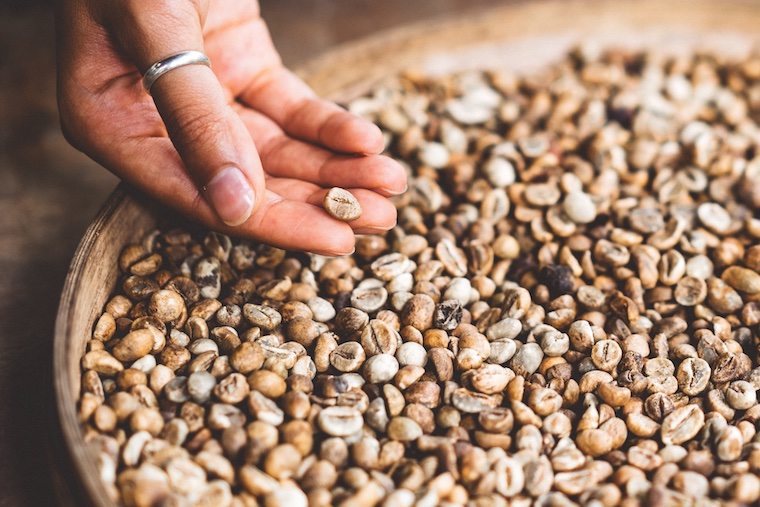
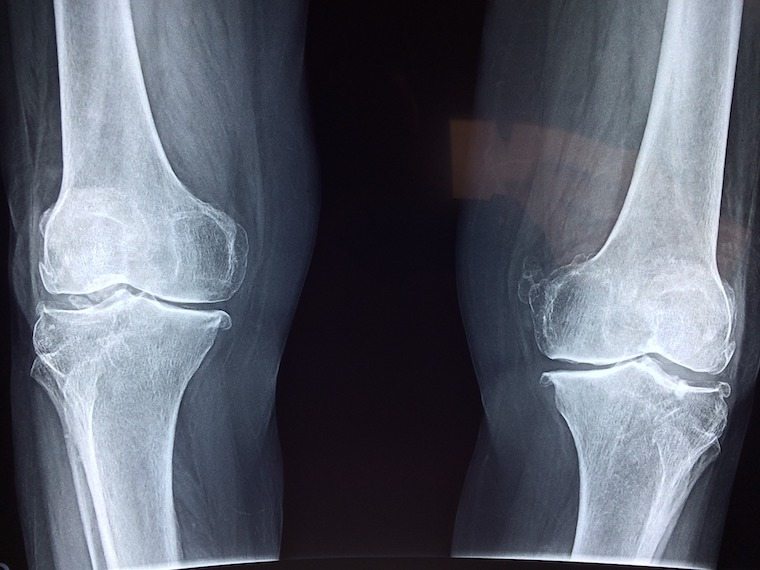


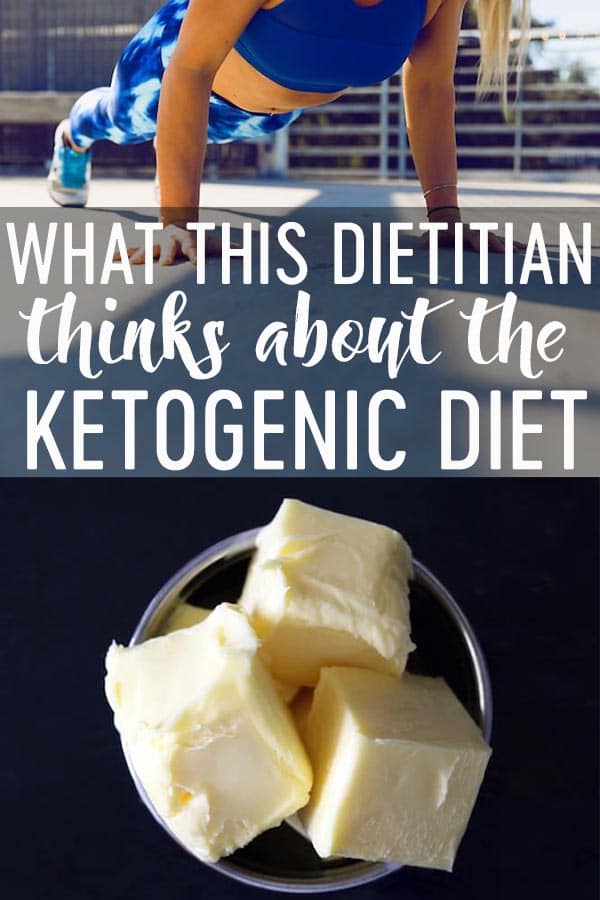




Mikki says
Love all the recipes! Thanks for putting these together!
Emily says
Losing weight is possible when you have the right information with contents of this type that help many people like us to achieve that desired goal with strategies that have been shared with us. the combination of food and a good diet gives fast results. I have tried a method that has helped me lose weight fast without rebound.
Sara says
Sounds amazing 🙂
Kari says
It is amazing. I did 8 weeks of low cals. 1200, and walks . I used My fitness Pal and Map my walk.
Then after I got used to cutting down I did the Ketogenic diet. Drinking plenty, multivitamin and Vit B daily. Also LoSalt which has magnesium and low sodium and other goodies.
Weird as I am not hungry. I gave up junk food including sweets and Coke Zero.
I have lost 14 in 12 weeks.
I will go to Dr to get blood tests soon so I can check my progress.
I feel better, don’t feel sick like I did.
For constipation – Lighthouse Bowel Cleanse.
I can buy clothes off the rack. Better than being obese. My brain is sharper. I get more stuff done. I don’t sit around. I feel like I can feel the fat melting off. I have trouble sometimes eating enough. After 40 years if being very obese on and off, I think I am better off. I hope to use it when I need it after I reach my goal. The blood tests will prove it.
Monica S says
This whole post must have taken so much effort and I think it’s incredible that you do this. The issue with these diets is that people hear about it, think it sounds good and do it. No questions! We are so lucky to have dietitians like you actually laying out all the research, the good, the bad, and everything in between about these diets, so THANK YOU!
Second point, I have never tried ketogenic dieting and also I did my calculations based on a 4:1 ratio and I was amazed at how much fat I would need to consume even at my size and the foods I would have to 1. Get rid of to achieve that and 2. Add in my diet to get there and , no thank you. My heart goes out to the families with children who do have to be on this diet.
The closest I came to low carb was when I followed a paleo diet (yup, been there , done that). I lost weight for sure down to 107 pounds because I was I lunch eating 800-900 kcals. You bet for SURE I gained all of that back and then some.
Finally at a stable point where I include all foods, in the right portions for me and I hope everyone can do that same!
Abbey Sharp says
Hey Monica! Thanks so much for sharing! These diets are so unsustainable and in the long term, just not worth it!
Mrs.Filip says
“These diets are so unsustainable and in the long term, just not worth it!” Most definitely in your opinion. I did a LOT of research on Keto before I started it in 2009. I lost 130lbs. It’s not a diet, it’s changing the way you think about food and fuel for your body. And once you do that you understand food freedom. I eat mostly Keto but if I want a beer and a piece of Watermelon I will let myself have one. True it’s not for everyone, not everyone has the willpower to control what they put in their mouth. We tend to reward ourselves with food instead of using it what its for, nourishment and fuel. It’s why our country is dying of obesity. Awesome that a size 10 women can put what she wants in her mouth everyday, exercise, and it not affect her weight but guess what, you are becoming the minority.
It’s not a fad diet. People who are really interested in changing their lifestyle or want to know more about Keto from a licensed professional should review articles by Shawn Mynar, Leanne Vogel, Jimmy Moore, Gary Taubes…to name a few.
Abbey Sharp says
Glad it worked for you. Thanks for sharing your view with us!
Louella says
Celebrity endorsements is the WORST reason to start a diet. And yes, it is a diet. Why? Because it’s not long term sustainable. Anyone can lose weight; ask an overweight person. They’ve lost weight hundreds of times. Keeping it off is a whole other ballgame and depriving yourself of carbs can lead to kidney damage. Educate yourself on the dangers of high protein diets that were largely debunked in the 70’s. Get with the program, girl!
Heather says
Amen! So agree with you.
Mike says
YES! Same here! That’s why I am here reading this article 🙂
I don’t even see carbs as food anymore unless its green.
Cheryl Mark says
Truly Dr. Colbert is also a reputable source for more thorough science and modification of previous Keto extremes. The statements about Keto diets with dairy everyday are not true…I am a 66 year old professional (University trained) and have found medical people often very unknowledgable or partially knowledgeable which may be worse. I ask you Abbey to dig deeper…meet Dr. Colbert-not a quack and more in depth than your overview. Personally I am finding switch to more green’s and low glycemic vegetables and fruits with healthy fats, occasional dairy and healthy protein; a way of life that is helping our whole family. Please watch The Magic Pill…the help for family’s caught in old thinking from poor science (ie. Alex Keys) and with autism etc. and so much modern disease is in itself, motivation to search out more truth.
Robin says
Hi, I think Keto is a great starting point. I am almost 60 years old and finally feel good, no fogginess or sluggishness. For the first time I have no hippy handles and my tummy is flatter – no bloating or puffiness and I feel more energetic. I have only been doing Keto for about 4 weeks. I am so happy with the results!! I will continue for another 8 weeks or so then I will add more foods back in BUT moderation is key. I will slowly up my healthy carbs and find what is good for me. Happy days everyone!!! =)
Abbey Sharp says
So glad the diet worked for you Robin.
Sharon Michelle says
Sustainable is Key. Thank you for the article, it explained so much! I have been inclined to follow this diet but what has worked for me before is a diet that’s called “The AntiDiet” and is simply starting your day with fruits, while strictly separating complex carbs and proteins during lunch and dinner, and still being opened to consume all kinds of food. I had been trying the Whole30 for so long and so many times and I simply can’t, does not make sense for me and so does Keto in the sense of overloading on fats and meat. Thank you!
Abbey Sharp says
Thanks Sharon!
Sam says
The problem is the SAD diet (Standard American Diet) and eat less move more advice. Tell that to a baby boomer with a hi bmi. Keto if done properly allows over weight people a way to lose weight without having to do hours in a gym. It is recomended to do a 15 minute walk now and then to keep a level of fitness. The weight is coming off even if one doesnt excercise. No sugar highs and lows, no cravings of carbs. Easier to do intermittent fasting to break plateus. Having the control over food and not being a slave to it. Reduction in sugar levels. The chance of autophahy. No brain fog. The chance to reverse type 2 diabetes. We have an obesity problem world wide. Yes you do have bad breath. Yes you can get constipated. Shall I stop because of a couple of negatives. Both negatives are treatable. The keto wave is coming. Empowering people to take control of thier own bodies by controlling thier insulin levels by keeping all sugar derivied products to a low level. The food companies drug companies are worried.
Rob says
I’m no fan of fad diets but what do you make of the beneficial effects the keto diet has on the various diseases you mentioned such as Alzheimers, MS, etc? It seems to contradict your conclusion especially when you used words such as “exciting” in reference to the some of the positive research on the keto diet in fighting these diseases.
Abbey Sharp says
When I say exciting, I think the early research is exciting, but right now there is not enough research to fully support these claims, which is why I’m still not convinced that the keto diet is for everyone.
Renee says
As someone who is prediabetic, Keto has been a godsend! I thought I was just a glutton, but now I’m certain I am actually insulin resistant. I am on Keto and can manage half a cup of blackberries without coming out of ketosis, but almost any other carb/sugar and I become a mindless food consuming zombie. I literally feel like I have zero control over my ability to stop eating. Also before trying Keto, if I was not able to eat constantly throughout the day I became grumpy and tired. Like none tired where it felt like I had lead running through my veins. On Keto, I can go a good 5-7 hours without eating and I don’t feel off at all. I am hoping to lose weight, but mostly I do not want to become diabetic and my problem is that I am insulin resistant. I do plan eventually to eat more black beans, vegetables and fruits again. Maybe a little chocolate on holidays and cake and ice cream on my
Birthday, but I need to live a mostly carb-free life. I was raised under the misconception that pasta and grain and cereal was fine and all you had to do was limit fat. I can’t help but wonder if following those eating restrictions as a developing child/teenager made me become insulin resistant in the first place
Louella says
Celebrity endorsements is the WORST reason to start a diet. And yes, it is a diet. Why? Because it’s not long term sustainable. Anyone can lose weight; ask an overweight person. They’ve lost weight hundreds of times. Keeping it off is a whole other ballgame and depriving yourself of carbs can lead to kidney damage. Educate yourself on the dangers of high protein diets that were largely debunked in the 70’s. Get with the program, girl!
Jasper says
Keto is high fat moderate protein, not high protein. Interesting how people say there isn’t enough research to say keto is good, yet there seems to be plenty of evidence saying keto is bad. Few studies have shown any actual damage to kidneys from keto. Because it’s not high protein. Do your research!
http://www.lindora.com/faq/does-being-in-ketosis-while-dieting-for-weight-loss-cause-kidney-disease-or-damage/
Check out Dr. Dom D’Agostino.
Mike Ian says
Awesome!
Sam says
I am with you! I have been a WW member and been years without going outside of my suggested guidelines. I would lose weight, plateau, go on one of their plateau breaking diets for two weeks then have to go off and slowly gained weight again. I was teaching my body to live on less. I have been down as low as 800 kcal a day and not losing. Eat more fiber so you feel full was what I was told. Try eating 800 kcal, high fiber and see how balanced your diet is. I am eating between 1800 – 2000 kcal now and dropping 10 – 15 lbs a month on Keto. Long term diuretic user, I no longer have water retention. I am salting and using fat and I am off my blood pressure medicine. I am not hungry so I am wondering why is this not sustainable? I eat mostly carbs from vegetables, I eat a variety of meats, I eat a variety of vegetables, I feel great and my blood tests are better than they have been in 2 decades. I am starting to feel that the carb revolution is because we are told by the government what is good to eat. We all know that vegetables are good to eat but the government subsidizes corn, wheat and soy, not spinach, kale and cucumbers. Do your research, follow your hearts, do what works for you.
Emily says
I love how you explained everything in a simple yet informative way!
Ange says
Excellent article. DKA is caused by too little insulin. As a result, cells don’t get sugar from the blood, so the body breaks down fat to get energy. The byproducts of this process are ketones.
Abbey Sharp says
Thanks!
Terri says
Great post, Abbey!! Thank you for taking the time to write this and share it with us! This diet may work in some cases as you pointed out but i find it very dangerous, eventhouh i’m not a dietician. I tried it and i felt horrible. I felt depressed, constipated, pain in my right side which i think was my gallbladder. Couldn’t sleep, terrible breath. AWFUL!!
Amy Gorin says
Looks amazing!
Sarah Remmer says
Looks so yummy and so pretty!
Sarah Remmer says
Delicious! My kids will love these!
Sarah says
Great post! Thanks for sharing!
Deborah @ Confessions of a mother runner says
I personally don’t think this type of diet makes any sense and can’t see how eating so much fat could possibly be good for you. Just my 2 cents
wendy hartman says
Inuit people of the South Pole eat only protein and fat as their frozen ground can grow no fruits and veggies.
The typical American diet is rife with SUGAR.
Maybe Keto is not an end-all beat-all, but its a start to reduce one’s refined sugar intake and allow some quick weight loss results to get a person “jump started” to a healthier lifestyle.
I am staying on Keto to lose one more pound, which is 10% of my body weight, then adding back in enough carbs to break even or maybe reduce more slowly. I do feel like crap all the time, but part of that is menopause, so which came first, the chicken (meno) or the egg (Keto)?
I have been the same over-weight for 12 years since my last baby, and this was a good starting point to lose some weight, get in touch with my body like never before, and learn more about SUGAR than I ever thought possible. It has opened my eyes to how much SUGAR controls our American diet, and to the reality that “low fat” diets DO NOT WORK.
Dallas Knight says
Wendy, I am not sure about the Inuit people of the South Pole or whether the North Pole has ‘frozen ground’.
Abby says
“I’m a big believer that everything – especially carbs – can be enjoyed in moderation and the best diet is just whatever eating pattern you find most pleasurable that also meets your body’s unique needs.”
Sounds good sense to me.
Nancy says
http://discovermagazine.com/2004/oct/inuit-paradox
The kind of fat and protein the Inuits of the Northland ate were far different than the ones we Americans have available having come from wild game. Follow the above link for these and many other details.
John says
The Inuit people don’t live at the South Pole. They live in Northern Canada and Alaska. It’s like saying “The Eskimo tribes of South America…”
Julia Brindle says
With Dallas Knights Shared comment, I almost feel like I can eat a package of nutty buddy bars a day since its pleasurable to me and it will be ok! NOT, Keto forever.
David says
It may be because all we have ever known is what we have been told by the FDA or who are the people in our country that tell you what you should eat. Do you realize how much money is in the grain , corn and sugar business in this country? A lot more than you can imagine. Bottom line I think its money telling people what they should eat. I’m gonna try the diet and see if it helps me. Thx for letting me voice my opinion.
Kelly says
Ditto
Supriya Kutty says
Watermelon is really refreshing. i am waiting for some free time so i can make it.
Abbey Sharp says
Yes totally worth it!
Punya says
Another fad diet to confuse the Dietitians as if we did t have enough on our plate! Thanks for sharing Abbey. Great breakdown.
Abbey Sharp says
haha yep exactly! Thank you 🙂
Diana says
I actually have been keto 20 months, lost 94 pounds and got off blood pressure, potassium, acid reflux, and anxiety meds.
Keto is a life saver and I’m just 6 pounds from my goal weight.
Have you read Grain Brain, Wheat Belly, Obesity Code, or Keto Clarity?
I’m part of a FB group called Ketogenic Success and I’d encourage you to join.
I’ve helped 25 others start their keto journey and together we’ve lost almost 800 pounds in 20 months. I’d say…
That’s better than Weight Watchers!
Please do more research.
I’d love to share my journey any time!
Abbey Sharp says
Hi Diana, so glad that the keto diet worked for you. Based on the research, I’ve found that the keto diet doesn’t seem to work for the majority of people, but for those that it does, I am glad. Thanks for reading and for sharing your experience 🙂
BeBe Harris says
I do not think you are glad this diet was effective for this person. Your video recipe reviews are juvenile at best, and your overall review is extremely negative. My personal experience is wt loss of 60 lbs in 11 mos; three migraines in 11 mos vs minimum of three per month for over 53 years, and all I was trying to do by starting keto was delay type 2 genetic diabetes onset . I am no longer prediabetic and I have taken less sumatriptan in one year than I have historically taken in one month. I sincerely hope your review has not prevented one person from enjoying their life to the degree I have in the past 11 months as a direct result of the keto diet. Shame on you!
Abbey Sharp says
Hey, my reviews are not put out to stop people from doing whatever they want. I am merely here to inform and let people decide what is right for them. I’m glad you were able to find a solution that works for you. Thank you for your comment!
Maggie says
Hi. I have been on the keto diet for 6 weeks and have not lost any weight but even more concerning, my gerd is much worse. I’m taking ppi’s just to stay on the diet. Constipation which has always been an issue for me is now much worse, hello laxatives! For these reasons, I have decided to go back to a more balanced diet leaning towards vegetarian. Keto works for some, I’m not one of them. I appreciate your info.
Abbey Sharp says
totally agree Maggie. i’m glad you’ve found what works for you!
Peter says
Hi Abbey,
Would it be possible to see the literature/studies stating that majority don’t respond to keto? Thank you very much, and keep up the good work!
Cristina says
Hi Abbey,
I just found your site in a Google search, and liking your site.
Jillian Micheals just posted her feedback on Keto, and I thought it was very informative as well.
I think this diet is great for Diabetics and people who have other health related issues.
I lost roughly 15-20 lbs on keto, but I’m a set point with my weight now, and I am going to try something else. I thinking cutting back on sugars is key.
Julia Martin says
Thank you for your objective review of the Keto Diet. I am not overweight but decided to try the Keto lifestyle because I have a lot of inflammation issues, including asthma and osteoarthritis. I had also been experiencing uncomfortable intestinal issues. I have been following the Keto lifestyle for 4 1/2 weeks, and I feel so much better- especially my stomach! I am eating a ton of leafy greens, broccoli and cauliflower. I am also enjoying Brussel sprouts, whole avacados and zucchini. I think the reason this is working well for me is because my body chemistry loves all the vegetables, good fats and protein. I also think that taking away sugar has had a big impact on how I feel. I’m just not eating grains and sugar. lots more veggies, berries, and consciously incorporating healthy fat. My stomach is flat again, and I have no more bloating or constipation. I have only lost 5 pounds, but I think my system is clean and operating better than it has in years. My point is that every person’s body chemistry is different. The Keto lifestyle seems to be what My body needed to feel my best. I did experience “the Keto flu” about a week into it, but it was short lived. I think that to be successful it is really important to eat a wide variety of veggies and good fats every day.
Abbey Sharp says
Hey Julia, so glad that diet worked for you! Thanks for sharing your experiences with us 🙂
Elena Zlatanova says
My experience shows the opposite: the keto works for me and my friends following it. I never found another diet so successful in weight loss. It helped me also to overpass the sublime appetite I developed after stop smoking. I look well. I feel well. On keto from 3 months.
Abbey Sharp says
So great the diet worked for you Elena
Ryan says
Thank you for posting Julie Martin. Abbey, have you ever been forced to loose a significant amount of weight? It is unfair to minimize the challenges that come along with consistent weight loss over a long period of time. Please provide information about any diet that has high success statistics when it comes to significant weight loss. Julie I plan to join your Facebook group and would absolutely love to have someone with your positive outlook to support my weight loss challenges.
Art Scott says
I have found several Ketogenic Success groups…exact name…but one was 2.0 …so which one are you refering to.
Thanx
elizabeth says
can you find me on facebook and tell me more about keto diet please? Elizabeth Stallings !
Mark says
It might be “working for you” at the moment but in the long run, you’re going to have major health problems.
Keto/LCHF was named one of the worst fad diets ever and it is the worst for diabetes. Here a little excerpt from Exercise Physiology:
The body responds by letting the liver convert the Acetyl CoA to an acid called a ketone. Ketones slow the metabolic rate, reduce appetite and build up levels of acid in the blood (and your body does not like acid). Left unchecked ketosis can lead a person who has diabetes, into a coma.
Protein can be used for ATP production within the Krebs Cycle, and the liver has to turn protein into glucose! If you deprive your body of glucose, it responds by depriving you of your muscle mass, a situation that slows metabolic rate even more and makes it hard to lose body fat.”
Basically, you’re burning muscle tissue to make glucose (that you should be getting from carbohydrates) to survive.
Here is another one from Endocrinology:
“Glucose is the favorite fuel of your trillions of cells, and some really important cells — your brain cells — can’t get their energy from anything else. Glucose in your bloodstream is all about energy — it’s delivered right to the doorstep of every cell that needs it.”
I would seek a professional RDN who specializes in diabetes (CDE). You’re headed for trouble if you stay on this diet.
All the people I know that did high protein/low carb or keto back a number of years ago are now having major health problems.
I reversed my T2 eating about 300 grams of healthy carbs a day. I have helped a lot of clients do the same.
Jennifer says
Well said! Totally agree with you
Chirimolla says
Mark What serious health problems do your friends that used keno diet have?be specific please
Jasper Thebeau says
You have lumped all types of diabetes together here. A diabetic will know there is a difference. Keto has been proven to help drastically with Type 2 diabetics. Type 1 diabetics should not go on a ketogenic diet.
Glucose is NOT the only fuel source your brain can use. Your brain can use ketones as a fuel source. Your brain also burns ketones much more efficiently and cleaner than it burns glucose.
Abbey, I appreciate all the work you put into this but there are a few things you missed. Not all oils are keto friendly. Vegetable oils are a huge no-no which was not mentioned. Regular mayo usually contains soybean oil which should be avoided. You also missed that foods with preservatives are a no-no which excludes some cheeses (you said enjoy all the cheese you like). Processed sliced cheese or pre-shredded cheese in a bag at the grocery store contains preservatives. Ever notice how shredded cheese in a bag never sticks to itself but when you shred your own cheese it sticks? Preservatives. Most nuts are okay but peanuts are a legume and should be consumed in very small amounts or avoided altogether. Don’t go crazy either, nuts do have carbs. I don’t eat more than a half cup a day of salted almonds. That said, you could have mentioned that getting salted nuts is ideal as you do excrete more salt and other minerals in your urine (eating keto is diuretic so attention must be paid to salt, potassium, magnesium, etc. as you did mention) so finding simple ways to add salt and other minerals is helpful. I also take a multi-vitamin daily. You mentioned you cannot do high intensity workouts. You are not supposed to do high intensity workouts as elevating your heart rate too high actually stops the fat burning process in your body. Your heart rate should be 180 beats minus your age +/- 5 beats depending on fitness level. A 40 year old obese person shouldn’t go over 135 beats/min during a workout as that is the optimal fat burning window. Higher than that and your body reverts to storing fat reserves thinking it will run out if it keeps this pace. Which bring me to metabolism. Its been long believed a high metabolism is good. A high metabolism leads to more hunger (because you’re burning glucose faster), ingesting more food, and typically gaining more weight. Slowing your metabolism down AND teaching your body to consume slow burning ketones instead of quick burning glucose puts less stress on your liver mainly and on your body in general. There’s a lot more but this is getting long so I’ll finish with this. You said this diet focuses on quantity of food and not quality. This is confusing to me….wouldn’t organic and grass-fed meats, be of better quality than non-organic and grain fed meat? (they feed animals grains to fatten them up….shouldn’t that be a huge warning sign for us?). Is food without preservatives not better quality than food with preservatives? Aren’t beverages with no sugar or artificial sweeteners of better quality than sugar/artificial sweetener-filled beverages? I’ve never seen any keto advocate advise ignoring quality foods, in fact its quite the opposite.
I’ve lost 30 pounds in 2 months, I feel better than I ever have, energy levels are up, my skin issues have cleared up, and I am training to run a 5k with my 14 year old. This is the only diet I’ve tried that has been easy to stick to. For me I could never do a diet if I didn’t like the food. Not a chance I could go vegan. Anyone reading this I strongly suggest you do your own research. No offense to the writer but nobody should only look to one opinion as the be all and end all on any topic. Mark Sisson is an amazing resource, has been eating keto for a long time and *gasp* is a marathon runner. On Netflix check out The Magic Pill for some eye opening stuff. Just do as much research as you can before either jumping in or dismissing it. There are some amazing and delicious foods that are keto-friendly, you just gotta put in the time to find them. Keto is not just a diet, it’s a lifestyle that includes proper exercise (to avoid loss of muscle mass among many other health benefits), stress management and proper sleep. Be informed.
Guy says
Lies and dumb. Fancy words but unfactual. Greens and protein, healthy fat with restricted sugar is bad? I have factual proof. If keto doesn’t work your not listening to your body. Also you become adapted and slowly add healthy carbs back in. This is fake news!
AZ says
Bit condescending there.
Sandra says
Why people find keto restrictive, and worst, why they think we cut more than one food group!
I eat dairy (not milk or yogourt, but cheese and heavy cream), I eat meat and substitutes (nuts, just to name one) and I eat vegetables. A lot. In fact, more than before, because I replace pasta with vegetables… I just don’t eat grains and cereals, that all. One out of four.
I have enough carbs in a day for all my needs. Just eating proteins alone raise the insuline level, enough for muscles preservation. And I top it with vegetables. I have more than enough. I just to be clear, I don’t think the human body is dumb enough to burn a lot of muscles when you have 100 pounds of stored fat. Why the body don’t store proteins, if it prefers that? Modern nutrition take our body – and us – for fools!
People take back the weight… when they stop keto and return at their old bad habits!
7 months, 40 pounds and counting! And very proud of it!
hannah says
What about fruit…
Meagan says
Plenty of fruit on the keto diet!!! Y’all might want to take a basic botany course. Berries, cucumber, zucchini, eggplant, tomatoes, avocados, olives, bell peppers etc. etc. ALL FRUITS
How in the world can eliminating artificially fortified grains and cereals, and sticking to meats, vegetables, low carb fruits, and avoiding sugar (AKA EAT REAL FOOD) be unhealthy??!!!
Delusional.
Guy says
Ditto! Another hate post. I was type 2 diabetes, high blood pressure, chronic pain, arthritis, and all of that is gone..
2 days from grains my stomach bloat was gone and I knew at that point everything this article and American diet was a lie. I’ve been on keto for over 16 months. Down 50lbs. In 6 months. I am ripped. Haven’t lost any muscle mass. I eat greens protein and healthy fat. I whole juice to get macros and yes I add watermelon or berries fo palatability purposes. I still eat carbs just healthy choices. I’ve become carb tolerant.. your liver will produce all glucose without ever eating 1 carb. This is biased and poor representation of keto lifestyle. When your starving and no carbs to choke keto will still thrive on either or fuel.
My doctor is amazed and my blood work back keto up. Salads, greens,meat, dairy and healthy fats is the right way to eat.
And yess I carb up with beans, and such when I feel I need.
Also I’m a size 30 waist from 36-38. Wife down 28 and a size 4 from a 12 in 6 months. Keep up keto for life.
Debbie says
Why not just rest on the opinion that it is not a fad diet and has been around for a long time as a diet that works for some people. Some of our youth on reddit may be doing it because they have diabetes (like my Son) Many of these kids are getting this from the poor American diet and low activity because of computers and phones. So if they can take a break from that and try to take an active and creative interest in this diet (which is a good diet for some) then why not just be respectful of that. My Sons doctor put him on this diet, we are doing it as a family and loving it! His blood sugar is normal after 1 1/2 months and we have all lost weight. BTW most if not all the foods you tried I would def eat! ???? There is def some concern about doing this way of eating carefully and making sure we are in balance with our nutrients. We have cheat meals once a week, so not feeling deprived at all!
Marisa says
You list all the benefits, then poo all over the diet. You apparently didn’t do enough research, because Keto is NOT a zero carb diet. But that didn’t stop you from labeling it as such at the end of your misinformed article.
Abbey Sharp says
I never said it was a zero carb diet.. I stated the macronutrient distribution at the beginning of the article. I think it is only fair to share the benefits and drawbacks of the diet, like anything in nutrition.
Harvey says
Disagree. I’ve been eating like this for ten months. I still enjoy carbs on the rare occasion but stick to a ketogenic diet most of the time. Ive lost 94lbs. I understand people lose weight in other ways but for me this worked. I eat 10x as many green vegetables as I ever have (at least 2 meals a day). My blood pressure dropped drastically in the first month. My cholesterol, triglycerides and blood sugar all normalized within the first 90 days. I don’t see any reason not to continue. I find this way of eating empowering and not restrictive. Before you call something a fad, because you obviously don’t fully understand this, you ought to read something from people other than the people you agree with. This is the problem I have with dieticians and most doctors. You don’t think for yourselves. You follow whatever the accepted guidelines are and spout them off without ever asking if they are right. It’s easier to stand with the crowd. I get that. But do not use your expertise as a means to criticize real progress. I would think as an expert your would be a proponent of what works! Have you ever been morbidly obese? Do you know what it is like to think your going to die from a heart attack at a young age? Do you know what it’s like to know your going to get type 2 if you can’t overcome your weight? Eating this way got me out of all of that and gave me my life back. Come down from the Ivory tower… Just maybe a little less judgement, a little more open minded
Norm says
You hit the nail on the head
Amen to you well said
Heather says
I won’t comment on the diet itself but dietitians do not simply rely on guidelines handed to them, nor on anecdotal cases. This article refers to specific studies all throughout, some that support the diet and others that don’t. The goal of a dietitian is to help clients reach their optimal health while still enjoying a high quality of life. I’m sure Abbey is genuinely happy for those it has helped. That does not mean this diet is best for everyone regardless of their unique circumstances, goals and medical history. Sadly there is not enough high quality research that Keto promotes sustained weight loss in the general population. Maybe there will be in the near future, but right now it would be unethical to recommend such a restrictive diet to the broad audience of a blog. I am truly happy it has worked for some people and I wish them luck on their journey. Thank you Abbey for a great article!
Elisa says
Like any researcher, one could pick and choose which research aligns with their argument. I could find ten research studies to argue all of her points.
I wonder what she thinks about a child with autism that removes an entire food group (glutens, sugars, etc) in order to see positive behavioral and cognitive change. I am going to go with my experiences and those of my clients’ and less from someone with a blog.
What I suggest… read ALL of the research and not just what suits your point.
Louella says
why don’t you do the same? You dismissed the points that disagreed with you while pointing fingers at the dietician when she included studies from both sides. Stop the hypocrisy
Guy says
Go eat herbal life right!
Wrong!
Keto is the cure for obese America. I eat fruit. Just not in excess. Natures natural desert. I treat it as such everyday.
I eat way healthier than I did on a carb diet and all bad symptoms and blood levels are gone. Also my eyesight has gone from 20/40 down to 20/10
Is this really a fad?
Louella says
I think you should take some of your own advice…you are being judgmental and thinking your diet will work for everyone. Look at the scientific facts; your body’s life blood is carbohydrates, the bread of life. Simple carbohydrates are what is killer to American society. Any diet that cuts out junk food like greasy potato chips and ice cream and cake will make you lose weight, not rocket science. Where do you think your body is getting fuel from? Muscle mass! It has to use that because you are depriving it of fuel! Why go on extreme diets when all you need to do is practice portion control and get up off the couch and walk around?
Mike says
The walking around part is not true in my experience, exercise alone will not help an obese person. I’ve been doing Keto and most things I’ve read have come true, I found this article to be unbiased. I will say this however, I agree I too have been eating many green veggies and the bad stuff I do use I use very little for flavor (like bacon) what I found that is utterly ridiculous on the part of the folks that did the diet rankings was saying Keto was unsustainable. The way I feel from being on Keto is insanely well. I want to keep eating this way! Unsustainable its the only diet I can do intermittent fasting on. I was type 2….
Jasper Thebeau says
“your body’s life blood is carbohydrates”
if this is true how did humans survive before agriculture? high carbohydrate foods simply didn’t exist in abundance before the agriculture age. Hundreds of thousands of years of evolution where humans would hunt for their food, and in between hunting eat whatever berries grew nearby….going days at a time or even weeks without food our bodies HAD to evolve into a state where they could conserve and store it’s energy then supply us with that energy burst for when that deer wandered by. Ketones are that energy source. Glucose simply doesn’t last long enough for us to survive and still have the energy to hunt. A little over 10,000 years of agriculture cannot undo hundreds of thousands of years of evolution.
Tina, RN, CDE says
No one is trying to diminish your success, but it does not work for everyone, and studies show it can have long term negative effects on your overall health. If you look at the Meta-analysis it shows a calorie restricted diet and Keto for 12 weeks had the same weight loss. There are also many studies that suggest looking back at people after one year those on a calorie restricted diet kept more of their weight off. The only one it does better than is just a low fat diet, which Dieticians stopped suggesting long ago. And as Health Care professionals we read the “REAL SCIENCE” not the internet articles, You Tube, Blog, book writers. One of the books written about it by Dr. Jason Fung. Have you looked him up on PUBMED? He has not written one article published in a real medical journal to be such an expert. It is not magic, it is not a cure. If you like the diet and it does not mess up your cholesterol then so be it but promoting it to others not knowing their medical history can be dangerous. What people don’t realize is that for year’s we have known that if you lose 7-10% of your own body weight your blood sugars will improve, cholesterol, and blood pressure. But you don’t have to do the fasting and put more burden on your Liver or potentially increase your risk for cardiac problems eating such high fat. If you do high fat at least do plant fats and not animal fats. But of course everyone is happy with your success but just keep a tab on your lab work.
Rob says
I agree with you 100%
Jasper Thebeau says
Well said. Also, the conspiracy theorist in me wonders how many visits to the doctor are diet related? How many huge companies rely on us consuming grains to pad their bank accounts? You’ll never hear anyone of note truly pushing ketogenic diets….too many people’s livelihoods depend on us consuming grains. Feel bad for the agriculture industry.
Guy says
Our co pay would be smaller because everyone would be slim.
JUSTIN .M says
Louella you are absolutely wrong. It’s actually funny to me that this dietitian talks about the keto diet to such an extent but neither you nor her ever mention Gluconeogenesis. Yes your brain has specific areas that can only use glucose, but the human body is a wonderful thing and can use a few different substrates to synthesize glucose without you ever having to eat it yourself. Look up Gluconeogenesis. Your body has the ability to convert the amino acids you find in protein into usable glucose for your brain. The fact that you don’t know this shows me how uneducated you are about the ketogenic diet in general. Perhaps you should read up on the subject before you start trying to sound like a scientist who clearly has no idea what she is talking about. Thanks.
JLM says
I disagree with you. A calorie deficit leading to weight loss for YOU should be not accepted as a reasonable method for ALL. Also, a 5% weight loss is enough to show improvements in blood pressure, blood sugar and lipids. It doesn’t mean the ketosis caused it, but rather the reduction in weight which could just be from the calorie deficit. Additionally, if you enjoy carbs occasionally then you are not in ketosis and could be following a modified low carb diet. Using evidenced-based research findings is not spouting off guidelines- it is science. And when you’re dealing with hundreds, thousands and millions of different individuals each presenting with their own unique set of risks, genetics, behaviors and history -that must be taken into consideration for any weight management plan. It is more complicated than how you presented it above. Also, I don’t believe Abbey is calling it a “fad diet” but she is explaining that the specific ketogenic diet plan that is being described in mainstream media is a current trend, which is undeniable. It is such a trend that there is no long term research study yet because that is how new to the scene it is.
Anonymous says
I’m on a gluten and dairy free diet, due to celiac disease.
When I was talking to a natural path last fall she suggested keto diet as well.
No thanks !
Keto diet sounds like a sarvation diet !
I have a friend who is on a keto diet. Once a month or so she also goes on a fast for 48 hrs … maybe 72 hours.
Has nothing but broth.
Personally I think that she’s going a bit to much.
Oh by the way on a keto diet you can’t have alcohol.
Too much sugars.
Danielle says
“can’t have alcohol”. I got news for you, I do and I can. 🙂
Guy says
Wrong. I drank the whole time. Scotch, vodka, even wine. Leave the soda, orange juice and sugars out. Alcohol sugar will stall keto as liver will get rid of first. I’m down 50lbs just left the beer to low carb (keystone 4 carbs) and seldom.
Harriet says
Yes you can have alcohol in moderation, but stay away from the really sugary ones if you can. Also, fasting is not essential either. Never starve yourself.
That’s not pleasant and totally unnecessary. It’s an extreme take on a ketogenic lifestyle eating program and way off the real deal. If you aren’t hungry don’t eat, simple. No problems here.
Anne says
So you want me to go back to sandwiches and Cheetos rather than eat veggies, nuts and berries?
Susie says
What a ridiculous comment. She said nothing of the sort. There are many ways to eat healthfully that are not Keto. I tried Keto for a few months and had a horrendous experience. It’s not for everyone. If it works for you and you are healthy while doing it, great! You go for it. I’ll do what works for me.
Jill Conyers says
I had no idea what banofee was until now. Looks like a dessert I would love.
Abbey Sharp says
Soooo delicious
Emily | EmPowered Nutrition says
I love the combo of watermelon and feta! So refreshing!
Abbey Sharp says
yes! so perfect!
Steve Clark says
I recently read that watermelon is the food with the highest satiety value. I would have thought something with massive protein would have been it. I love feta too. Sounds like a winning combination!
~Steve Clark, NASM CPT